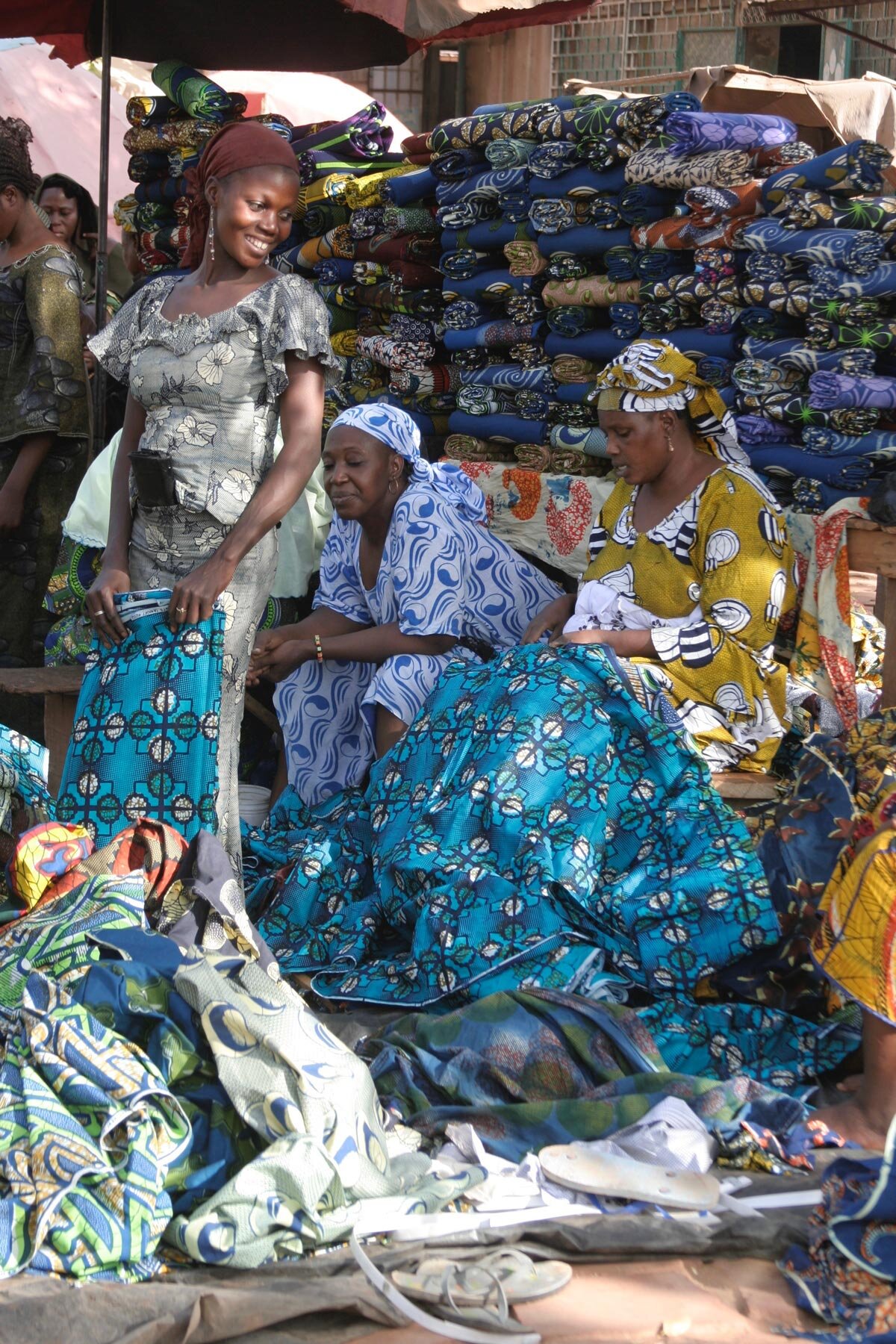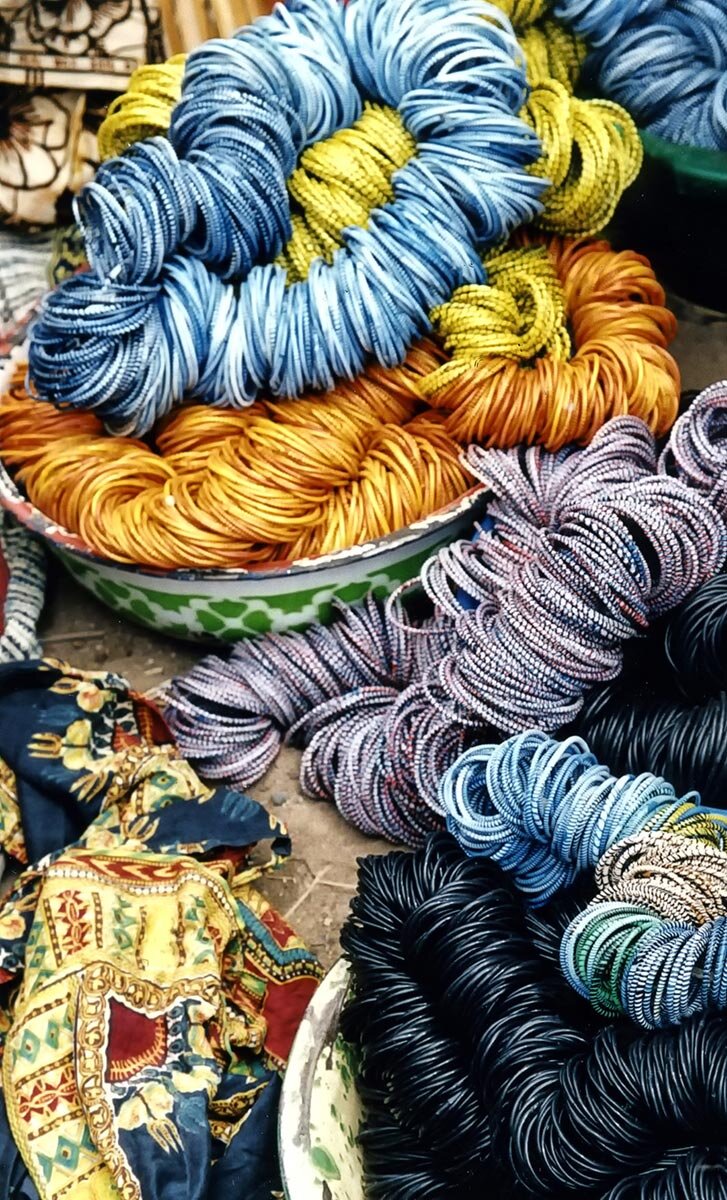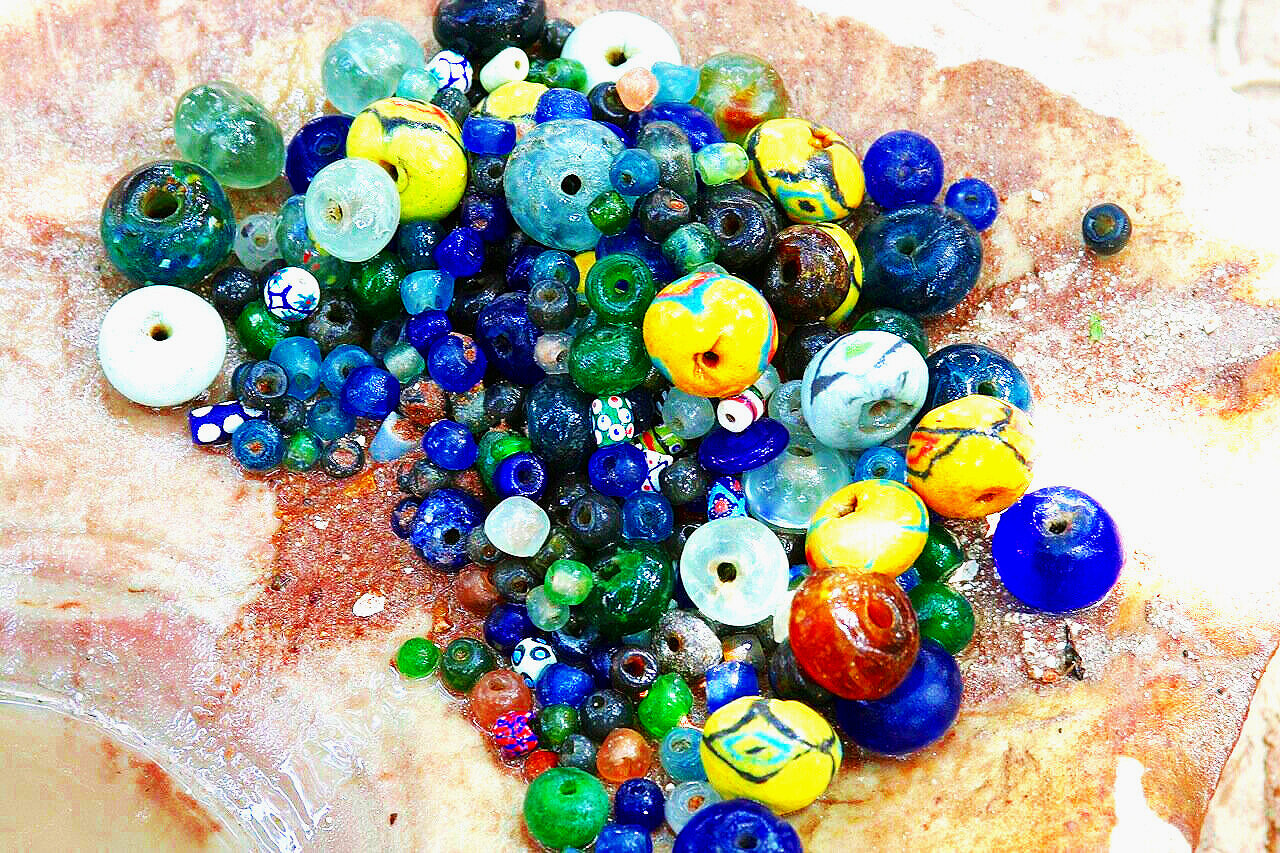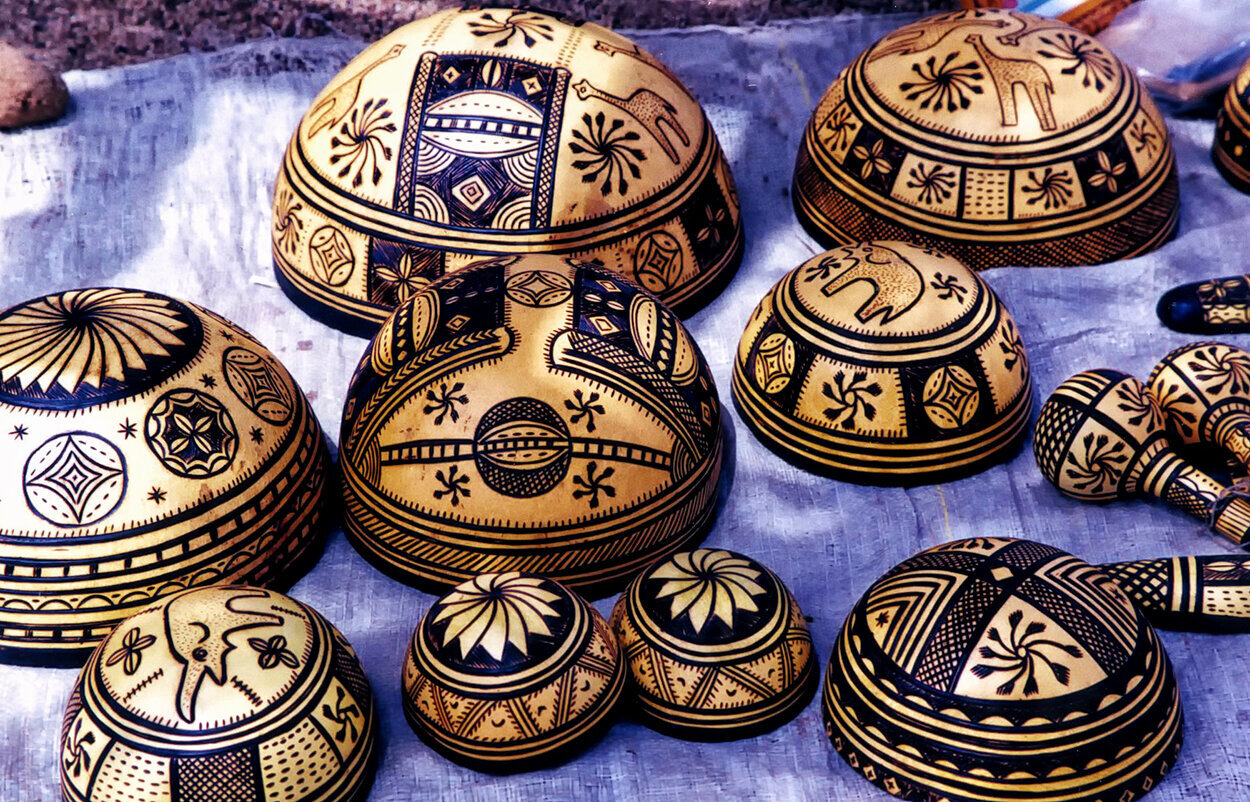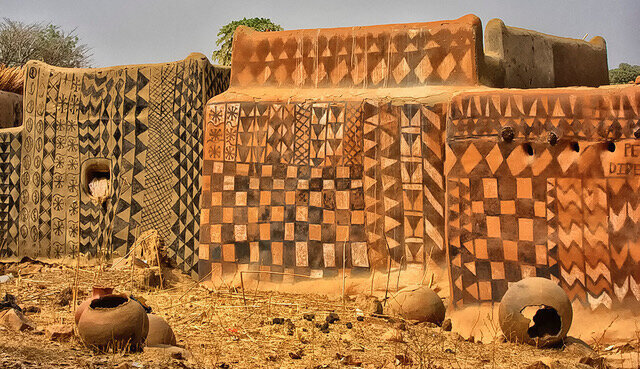
Djenne Market
The Monday morning market in Djenne, Mali
Thousands of people from all tribes gather to bargain and trade at the Djenne Monday market, one of the most renowned in Africa. Women are decked out in boubous, long flowing robes or loose-fitting dresses with flounces and puff sleeves, and musaras, head wraps, which they tie and twist to bouffant heights, à la Palm Beach. Every turn exposes you to a different kaleidoscopic color combination.
The commercial energy is felt everywhere. Herbalists display botanicals for malaria, peptic ulcers, headaches, and arthritis and cola nuts for energy. Vendors advertise bright Crayola-colored fabrics, hung on horizontal wooden poles, tiered from the ground up to 10 feet. Busy fish vendors haggle over prices of dried catfish mounded high in plaited baskets. The meat section draws long queues of women for steer, goat, lamb, and chicken; for men, there's the tool section, the rope section, the drum section, and the shoe section. At the soap and cream quarter, women gather in clutches to buy shea butter made from the fruit of the karite tree. The din of conversation—both commercial and intimate—is an intoxicating rhapsody.
Fulani woman with gold shoulder sweeping earrings and calabash bowl with its head ring for balance.
Look for the Fulani wearing their solid gold, shell-shaped, shoulder-sweeping earrings. Poorer women don delicately fashioned clay imposters painted a glitzy and eye-stopping gold. The knockoffs are wonderful.
The Fulani are known for their elaborate body adornment, from the striking clothes they wear with flair to their ponderous gold jewelry and tribal tattoos, marks of beauty. Fulani tattoo by making tiny incisions around their feet, lips, cheeks, and forehead, then filling them with a mixture of soot, leaves, and indigo.
Young beaders sit under umbrellas shading wooden plank tables covered with hundreds of tiny seed beads, threaded on a single cotton strand with a dress snap fixed at each end. These rope bead bracelets can be up to four feet long!
The cloth market
Vendors selling food and tamarind seed pods
Beader making ‘rope” beads
Malian women displaying dazzling colors
Artistic hair style in the market
Bead section
Fulani woman adorned with lip tattoo

